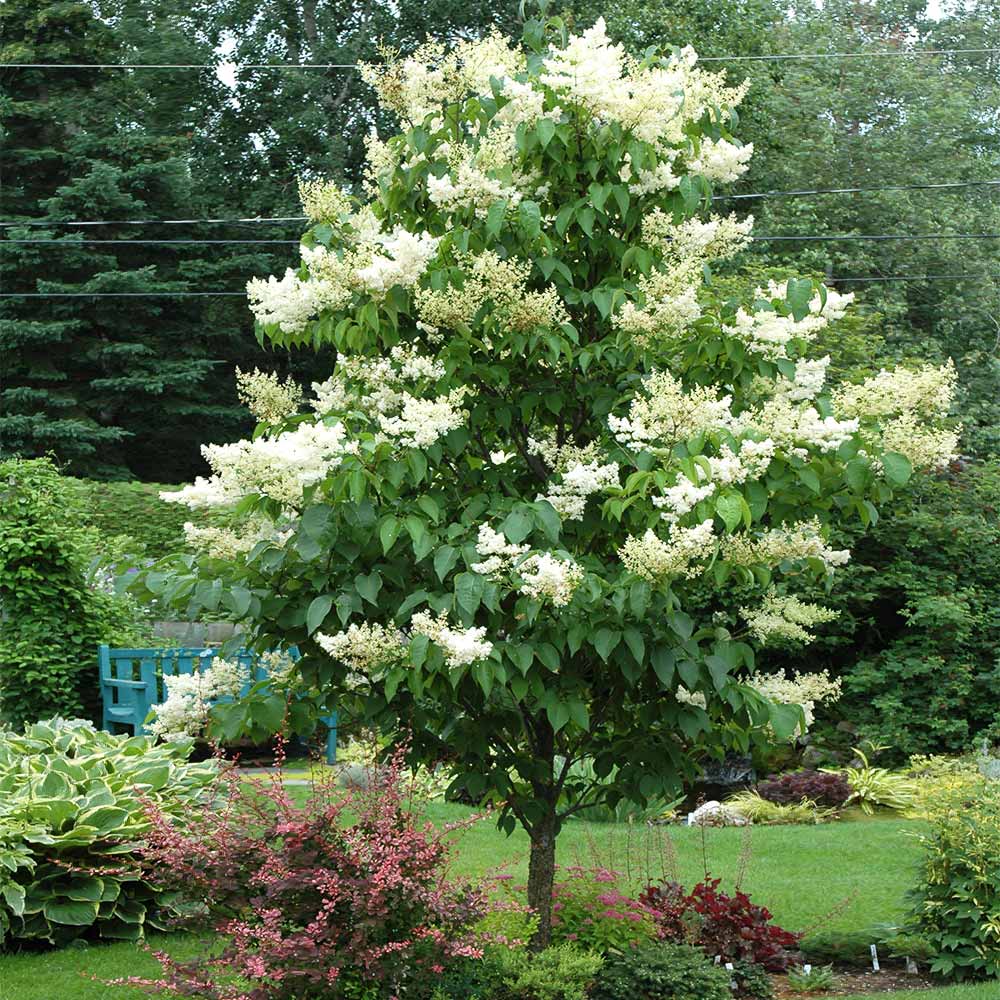Ivory Silk Lilac - 2 inch
Ivory Silk Lilac - 2 inch
Low stock: 10 left
Couldn't load pickup availability
Ivory Silk Lilac (Syringa reticulata 'Ivory Silk') – Shopify Listing
Description:
Ivory Silk Lilac (Syringa reticulata 'Ivory Silk') is a charming, small ornamental tree renowned for its spectacular, creamy-white flower clusters and attractive, cherry-like exfoliating bark. Blooming in early to mid-summer, well after common lilacs, it fills the air with a sweet, mild fragrance and attracts pollinators like bees, butterflies, and hummingbirds. Its dense, upright canopy of dark green leaves transitions to golden yellow in fall, while the reddish-brown bark provides winter interest. Exceptionally cold-hardy, disease-resistant, and low-maintenance, Ivory Silk Lilac is perfect for street plantings, specimen trees, small yards, and under utility lines.
Plant Characteristics:
-
Botanical Name: Syringa reticulata 'Ivory Silk'
-
Common Name: Ivory Silk Lilac, Japanese Tree Lilac
-
Type: Deciduous small tree or large shrub
-
Mature Height: 20–25 feet
-
Mature Spread: 15–20 feet
-
Growth Habit: Upright, oval to rounded canopy
-
Foliage: Dark green, turning golden yellow in fall
-
Flower Color: Large, creamy-white, fragrant clusters (10–12 inches long)
-
Bloom Time: Early to mid-summer (June–July)
-
Bark: Reddish-brown, exfoliating, cherry-like with silvery highlights
-
Light Requirements: Full sun (6+ hours for best flowering)
-
Soil: Prefers well-drained, loamy soil; tolerates clay, sand, and slightly alkaline soils
-
Water Needs: Moderate; drought tolerant once established
-
Hardiness Zones: USDA 3–7
-
Maintenance: Very low; prune in late winter/early spring to shape or remove dead wood
-
Resistances: Highly resistant to disease, pests, deer, and urban pollution
-
Wildlife: Attracts bees, butterflies, and hummingbirds
-
Uses: Specimen tree, street tree, small yards, parkways, privacy screens, mixed borders

